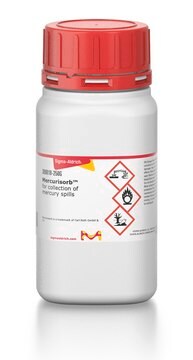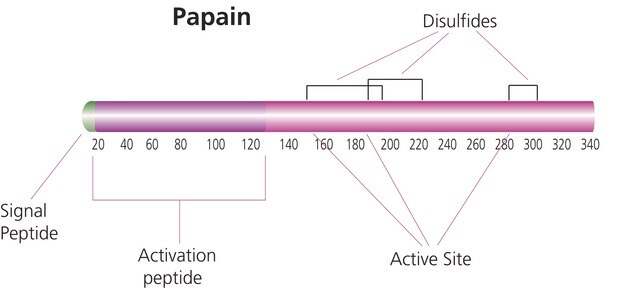215457
Mercury
ACS reagent, 99.9995% trace metals basis
About This Item
Prodotti consigliati
Grado
ACS reagent
Livello qualitativo
Densità del vapore
7 (vs air)
Tensione di vapore
<0.01 mmHg ( 20 °C)
1 mmHg ( 126 °C)
Saggio
99.9995% trace metals basis
Forma fisica
liquid
Impiego in reazioni chimiche
reagent type: catalyst
core: mercury
Resistività
95.8 μΩ-cm, 20°C
Impurezze
≤5 ppm Nonvolatile matter
Colore
passes test
P. eboll.
356.6 °C (lit.)
Punto di fusione
−38.87 °C (lit.)
Stringa SMILE
[Hg]
InChI
1S/Hg
QSHDDOUJBYECFT-UHFFFAOYSA-N
Cerchi prodotti simili? Visita Guida al confronto tra prodotti
Categorie correlate
Applicazioni
- Voltammetry in Determination of Trace Amounts of Lanthanides-A Review.: Although primarily reviewing methods for lanthanide detection, this paper includes relevant techniques applicable to mercury analysis through voltammetry, suggesting cross-application potential in trace metal detection ( Grabarczyk et al., 2023).
Avvertenze
Danger
Indicazioni di pericolo
Consigli di prudenza
Classi di pericolo
Acute Tox. 2 Inhalation - Aquatic Acute 1 - Aquatic Chronic 1 - Repr. 1B - STOT RE 1
Codice della classe di stoccaggio
6.1B - Non-combustible acute toxic Cat. 1 and 2 / very toxic hazardous materials
Classe di pericolosità dell'acqua (WGK)
WGK 3
Punto d’infiammabilità (°F)
Not applicable
Punto d’infiammabilità (°C)
Not applicable
Certificati d'analisi (COA)
Cerca il Certificati d'analisi (COA) digitando il numero di lotto/batch corrispondente. I numeri di lotto o di batch sono stampati sull'etichetta dei prodotti dopo la parola ‘Lotto’ o ‘Batch’.
Possiedi già questo prodotto?
I documenti relativi ai prodotti acquistati recentemente sono disponibili nell’Archivio dei documenti.
Il team dei nostri ricercatori vanta grande esperienza in tutte le aree della ricerca quali Life Science, scienza dei materiali, sintesi chimica, cromatografia, discipline analitiche, ecc..
Contatta l'Assistenza Tecnica.









